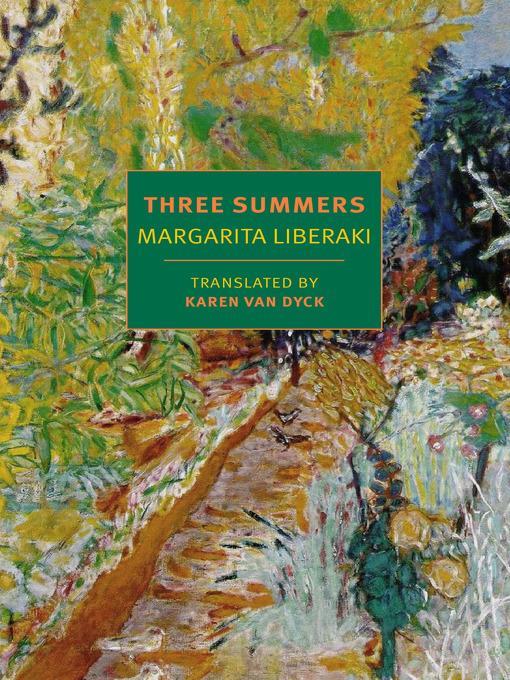
Three Summers
کتاب های مرتبط
- اطلاعات
- نقد و بررسی
- دیدگاه کاربران
نقد و بررسی

March 1, 2019
First published in 1946, Greek novelist and playwright Liberaki's (The Other Alexander, 1959, etc.) story follows three sisters through the eponymous seasons.Maria, 20 when the novel begins, pulses with burgeoning sexuality. Infanta, 18, is a cold beauty who strives for perfection. The narrator, Katerina, 16, is obsessed with family secrets, especially those of her mother's mother--the sisters call her "the Polish grandmother"--who abandoned her young daughters and husband to run off with a musician. Liberaki vividly paints a pastoral, idyllic beauty shot through with the threat of danger; the sisters' aunt was raped at their age by her fiance and never married. As they attempt to unravel the mysteries of their parents' and neighbors' lives, celebrate feast days, flirt with boys, and contemplate the future, the girls begin to discern a system predicated on women's submission. The choices before them are few. Maria marries early, saying to her youngest sister: "You expect great things from life....Not me. You see, I know that what is really important can be found in the little, everyday things." When Katerina tells her astronomer boyfriend she's writing a novel, he laughs in disbelief. The great strength of the book, and its enduring freshness, lies in its evocation of a beloved, now vanished place and the panoply of characters whose stories the budding novelist narrator tells us through the use of an impressively successful first-person omniscient point of view. "Oh, to be able to give shape to such experiences, to make them live after their death." With the self-centeredness of a teenager and the longing of an artist, she wants to capture what she loves: "I want to be able to describe the brilliance of the world just before the sun sets, when it falls on the grass, and how green the grass looks, and all the other beautiful things I've seen, for it's a shame for them to last only as long as I am looking at them."A leisurely, largehearted coming-of-age novel, earthy and innocent, nostalgic and beautifully rendered.
COPYRIGHT(2019) Kirkus Reviews, ALL RIGHTS RESERVED.

May 6, 2019
Three sisters come of age in the genteel milieu of prewar Greece in Liberaki’s dreamy, modernist gem of a novel, her first translated into English. Narrated by the youngest, impulsive and imaginative 16-year-old Katerina, the story brackets a period that will prove decisive in the lives of the sisters, who have grown up with their divorced mother, maiden aunt, and grandfather in a country house near Athens. Twenty-year-old Maria gets engaged to the lovestruck Marios, though her embrace of a conventional destiny coincides with the feeling that “from this day on the sacrifices would begin.” At 18, the restrained and virginal Infanta is at an intersection in her relationship with Nikitas, a childhood friend she can’t bring herself to kiss, though “she wanted him the way she wanted to fall into the cistern on hot days.” And Katerina dreams of David, a half-English neighbor and astronomer, who is also pursued by the older, married Laura Parigori. In Van Dyck’s translation, Katerina shifts seamlessly between her own perspective and the thoughts and dreams of her family and friends, painting a world in which women are both cosseted and neglected, free to imagine “thousands of lives,” and longing for a true and tangible connection with another: “something like lightning... you feel it before you have time to think.” This is an elegant and striking novel.

























دیدگاه کاربران